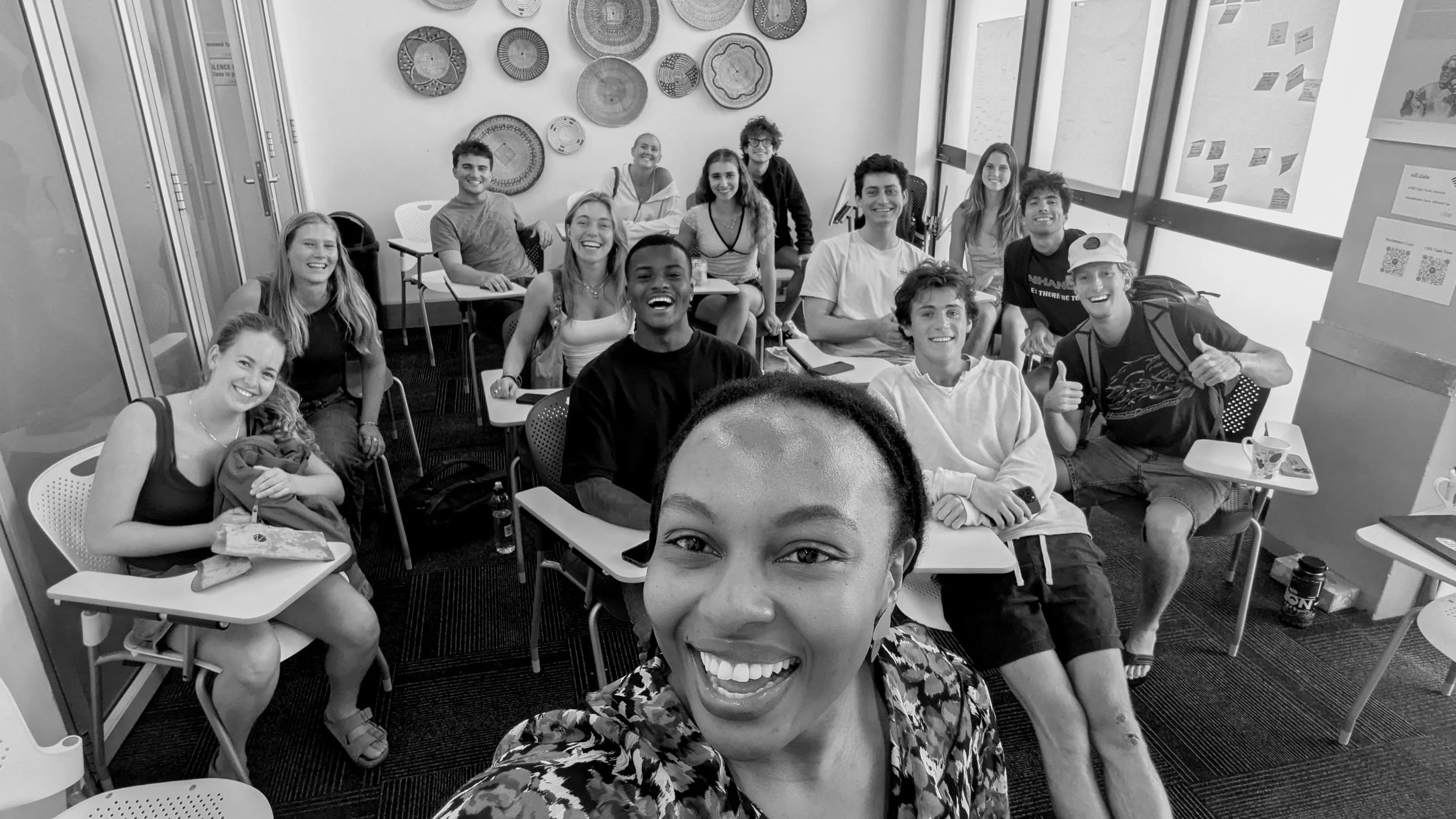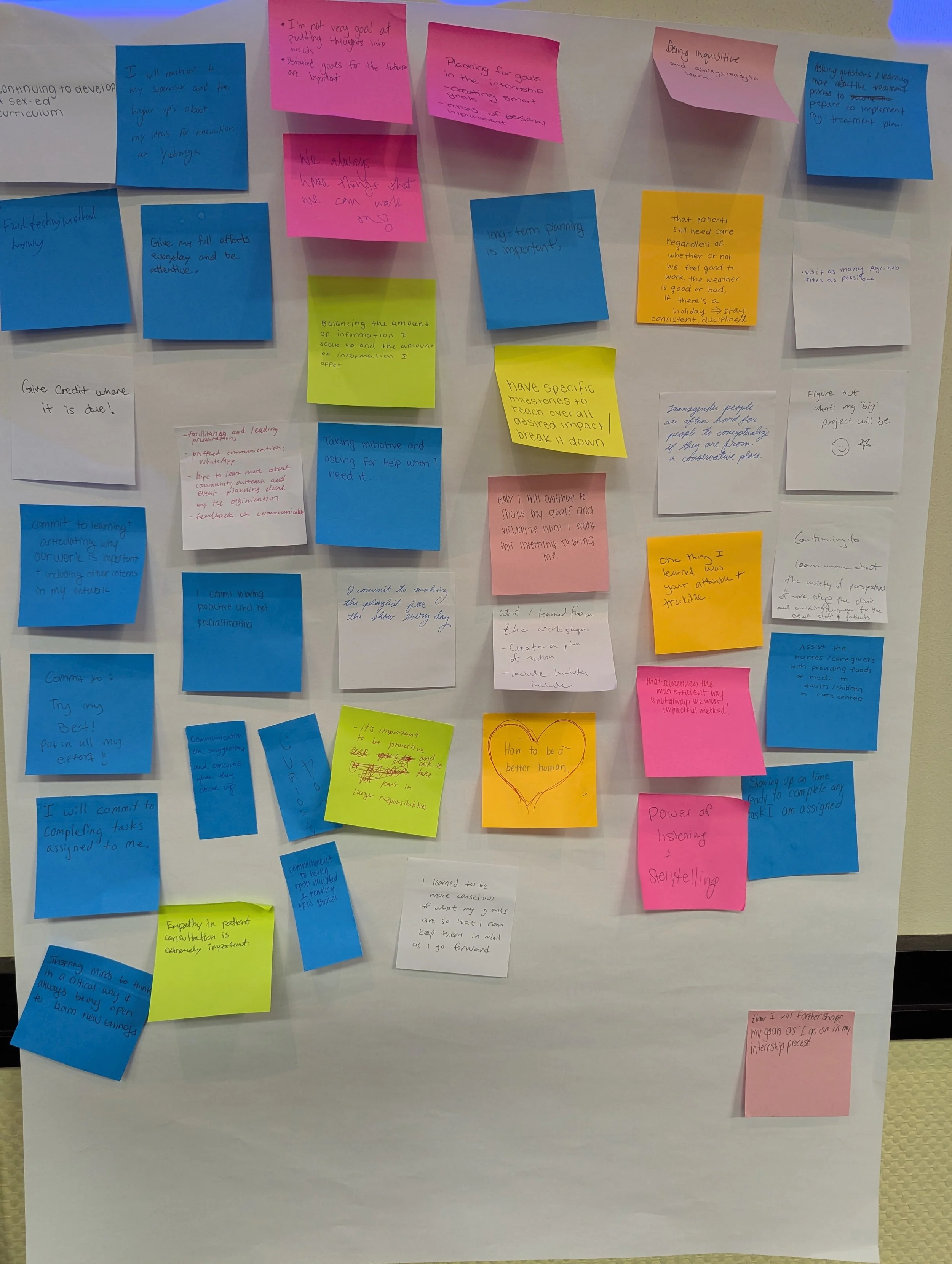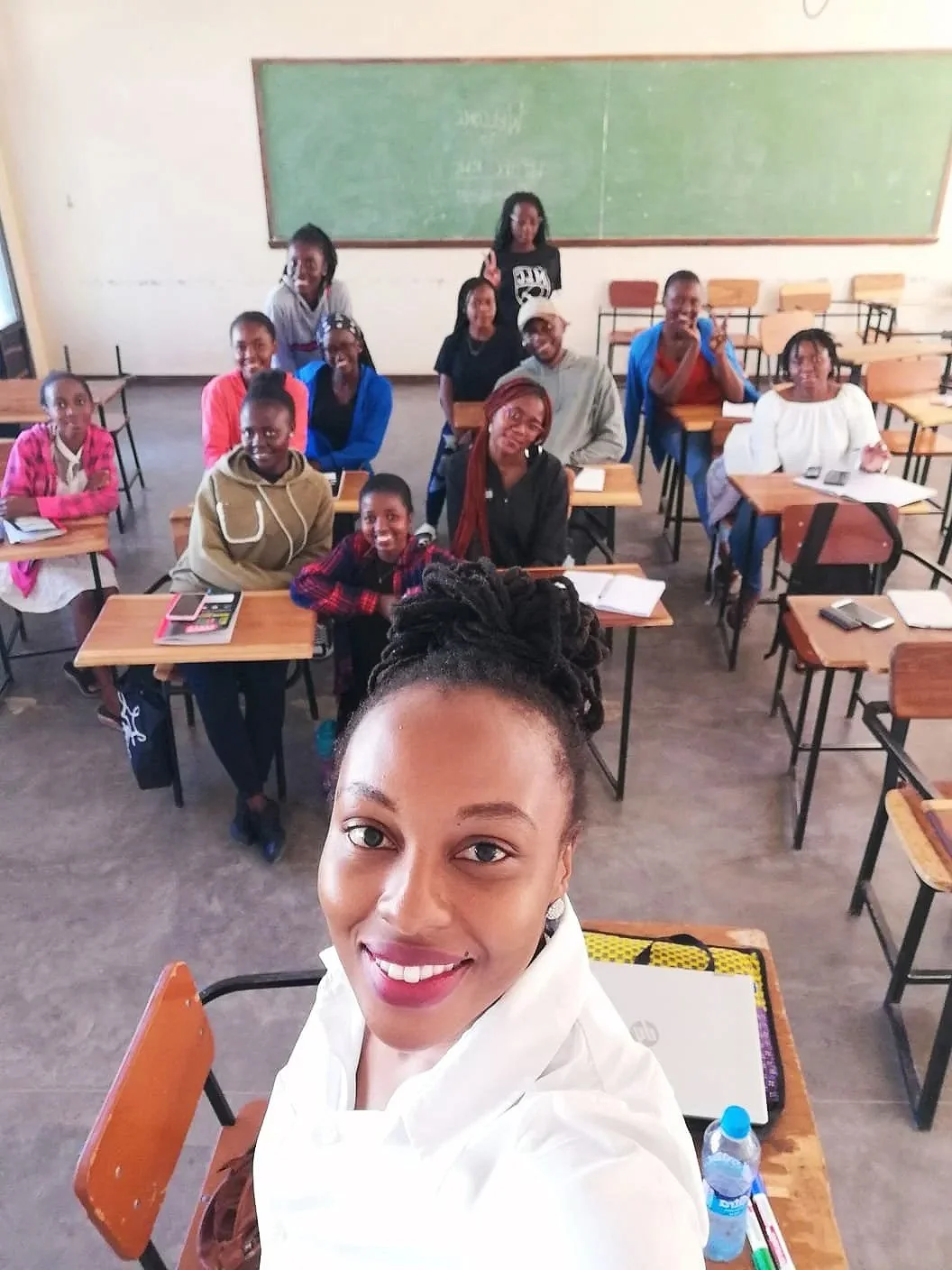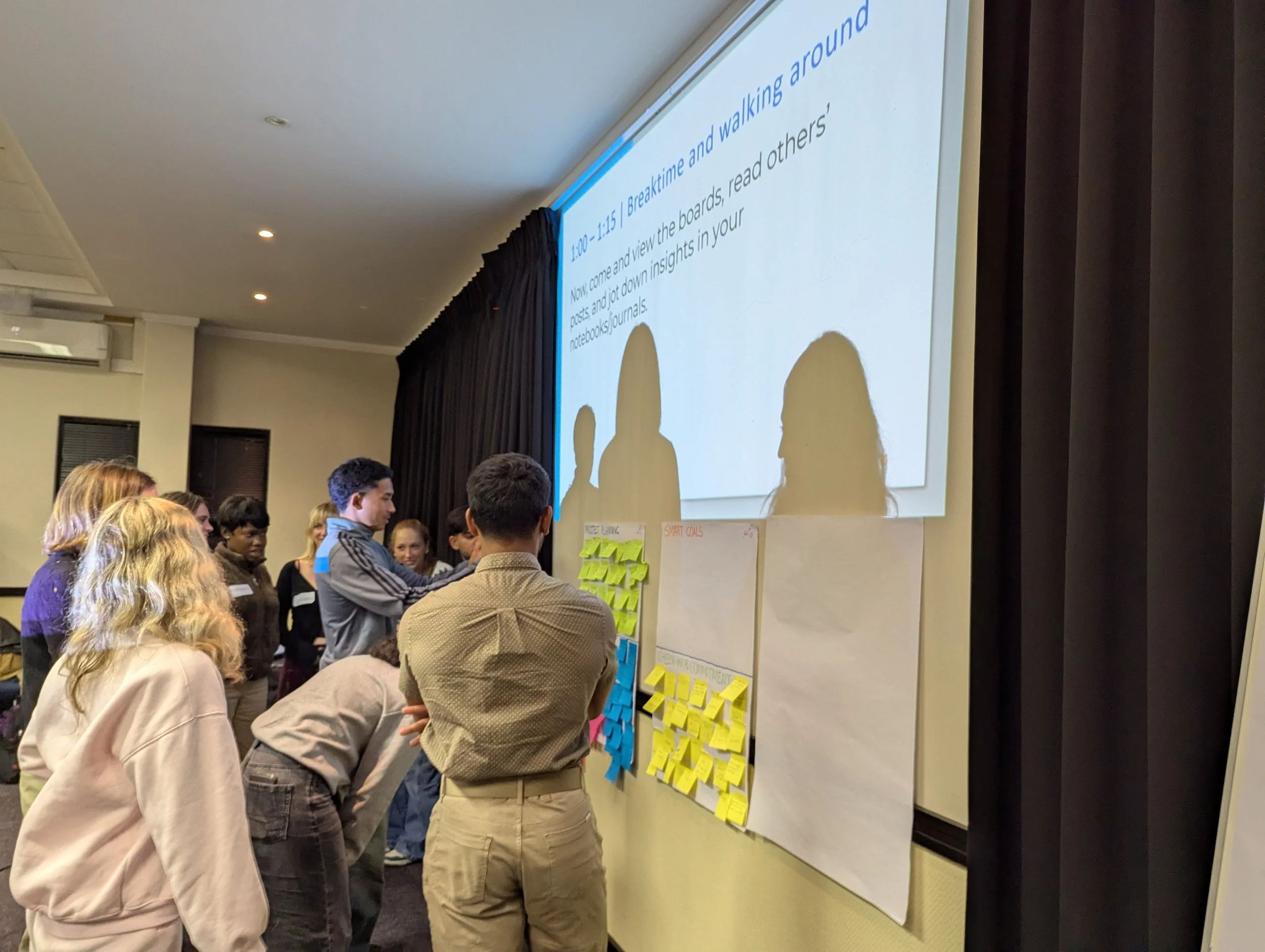Pedagogy in Action
My teaching is described as inclusive and engaging, fostering student intellectual growth, critical thinking, and collaboration. I’ve carried this approach across diverse classrooms — from international programs to public health and anthropology courses.
June 2025 - present | Lecturer: Council on International Educational Exchange (CIEE)
May 2024 | Guest Lecturer: School of Public Health, University of Zambia
Feb 2014 - Nov 2017 | Anthropology Teaching Assitant: Department of Anthropology, University of Cape Town
May - June 2015 | Global Health Teaching Assistant: Organization for Tropical Studies

My teaching philosophy centres on critical inquiry, interdisciplinarity, and applied engagement. It is a space where students engage critically with intersections in global dynamics, such as digital transformation, developmental paradigms, inequities, shifting political economies, and how these intersect with everyday lived experiences. Through combining ethnographic methods with theoretical analysis, I guide students to reflect on their positionality and to engage ethically with diverse communities.

Intellectual Stewardship and Co-Creation
The students and I use the classroom to engage critically with questions that connect developmental or postmodernist paradigms with lived realities. Previously, as a teaching assistant at the UCT Anthropology Department, tutorial classes functioned as smaller interactive divisions of the larger lecture course, enabling students to engage deeper with their material. As a guest lecturer in Public Health at the University of Zambia, I worked with students from health-related fields, drawing on insights from my ethnographic fieldsite on medical pluralism in Zambia to foster dialogue between biomedical frameworks and local healing practices. At the Council on International Educational Exchange, I co-design the learning syllabus for students from the United States, who bring additional perspectives from their placements in Cape Town. This global and cross-societal context enriches the classroom, allowing us to value established scholarly frameworks, workplace experiences, and the varied knowledge students contribute. My teaching is an intellectual stewardship with students from across the world—an ongoing practice of sharing concepts and co-creating knowledge that equips them to confront challenges ranging from inequalities to resource distribution, misinformation, and the social consequences of hegemonic decision-making meted out by dominant developmental paradigms or algorithms.

Inclusive and Context-Responsive Pedagogy
My teaching and curriculum design respond to context-specific realities as they emerge within the social sciences. I pay close attention to the need for transformation in knowledge production, ensuring that teaching does not reproduce narrow or exclusionary frameworks. The learning environments I create affirm the diverse profiles of students and their varied learning styles. To support this, I design assignments and reflections that allow for multiple modes of engagement, such as written, oral, visual, or other creative forms, so that students can draw on their strengths while expanding their perspectives. I also incorporate case studies from the Global South to decentre Western narratives, encouraging students to engage with knowledge and practice from multiple worldviews.

Critical Information Literacy and Assessment
Information and data literacy is beyond a technical skill, but is also a critical practice of questioning how information systems are constructed, whose knowledge is prioritised, and whose is silenced. Drawing from my research on data practices, digital archives, and platform technologies, I guide students on these themes to analyse the flows of information, the ethics of care around technology, and the social consequences of algorithmic decision-making. This includes assignments that invite students to interrogate platform policies, identify governance gaps, and reflect on the implications for equity and accountability. Assessment is an extension of this critical dialogue. I use a combination of formative and summative strategies, such as feedback meetings, annotated rubrics, detailed comments, and peer review, to foster a reflective space, constructive critique, and professional growth. These practices affirm students’ diverse ways of learning and position assessment as part of a collaborative process of intellectual development.


